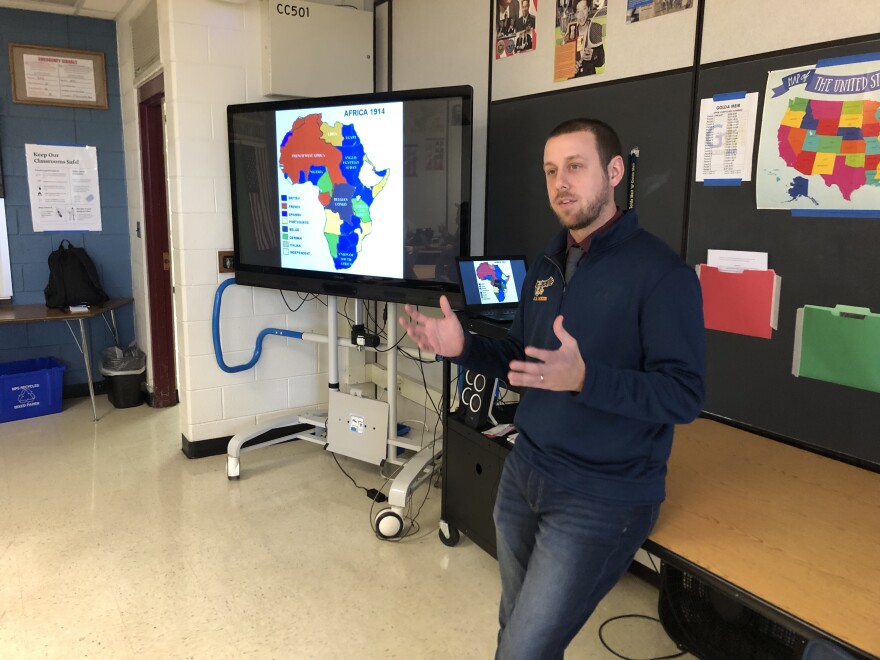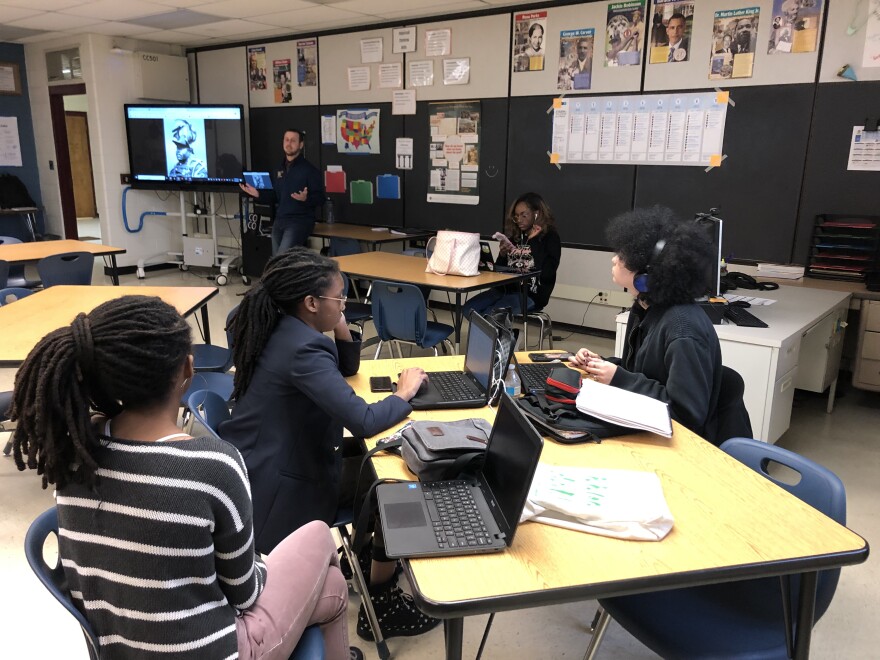On Feb. 1, the College Board will release its official framework for its advanced placement course for African-American studies.
The pilot version, conducted at 60 schools, became a target of some officials who've worked to put limits on discussions about history and race.
Students at Golda Meir High School in Milwaukee, where nearly two-thirds of the students are Black, say they yearned for such a class.
During a recent lesson in the new AP course, teacher Alex Janke pulls up a photograph of Jamaican activist Marcus Garvey. Garvey supported the “back-to-Africa” movement in the 1920s.
"We’ve looked at this a couple times throughout class — we’ve talked about people who supported separatist ideas and people who supported more, like, accommodationist or integrationist ideas as well," Janke says. "Marcus Garvey, fair to say, more on the separatist side of that debate."
The class of about 20 high school seniors reads a speech in which Garvey denounces European colonization in Africa. Janke asks what stood out, and student Mark Guerrero speaks up.
"White people are trying to take over Africa, which is literally where Black people come from, you know," Guerrero says. "You don’t treat Black people right, but you’re trying to take over their land."

While today’s lesson is about a separatist thinker, Janke says the course is much more expansive.
"We talk about arts, we talk about cultural trends, we talk about the diaspora outside of the United States as well, which might not be included in the classes I’ve taught before," Janke says. In his eight years at Golda Meir, he's taught classes like AP U.S. history and African American history.
AP classes allow students to earn college credit while still in high school. The College Board, which creates AP courses, has long offered U.S. History and European History. This course on African American studies has been in the works for a decade.
Janke says when his students learned about the class, their reaction was: "It's about time. They've been waiting for this kind of a class."
University of Wisconsin education professor Erika Bullock agrees.
"It is possible for a Black student to go through an entire K-12 experience and not read a book by a Black author, or not experience a Black teacher, or not understand how Black people around the world have contributed to things like mathematics and science," Bullock says. "Children should be able to see themselves in what they're learning."
Officials elsewhere have been highly critical of the course. The Florida Department of Education banned it, saying it has a “political agenda.”
The College Board said in a statement that AP students are never required to agree with a certain opinion or ideology. But the College Board does plan to release a revised framework for the course on Feb. 1.
Back in Milwaukee, Janke wraps up the day’s lesson.
"We’re gonna talk more as we go along here, that the overwhelming part of the civil rights movement disagreed with what Marcus Garvey was saying," Janke says. "People like Booker T. Washington, W.E.B Du Bois."
Some of Janke's students say prior to this class, their primary teachers of Black history were their family members.
"My grandpa always told me that the biggest weapon used against Black children is that they don’t open a book," says Kiyah Harris. "And he made me pick up that book and read and educate myself."
Student Devin Hayden says what she’s learned here is much deeper than traditional social studies classes.
"I think taking this class really helped me understand that there’s a broader history besides slavery and civil rights movement that we can all stand to know about," Hayden says. "And being able to learn about that just really made my education so much more wholesome."
So far there hasn’t been any backlash to the course in Wisconsin. Student Kaylia Humphrey says it’s frustrating that it’s controversial elsewhere.
"I think that by hiding history and not letting it be taught, we just end up repeating the cycle," Humphrey says.
A cycle, she says, of not knowing the country's full history.
The AP African American studies will be available to all high schools for college credit in fall 2024.
Have a question about education you'd like WUWM's Emily Files to dig into? Submit it below.
_



